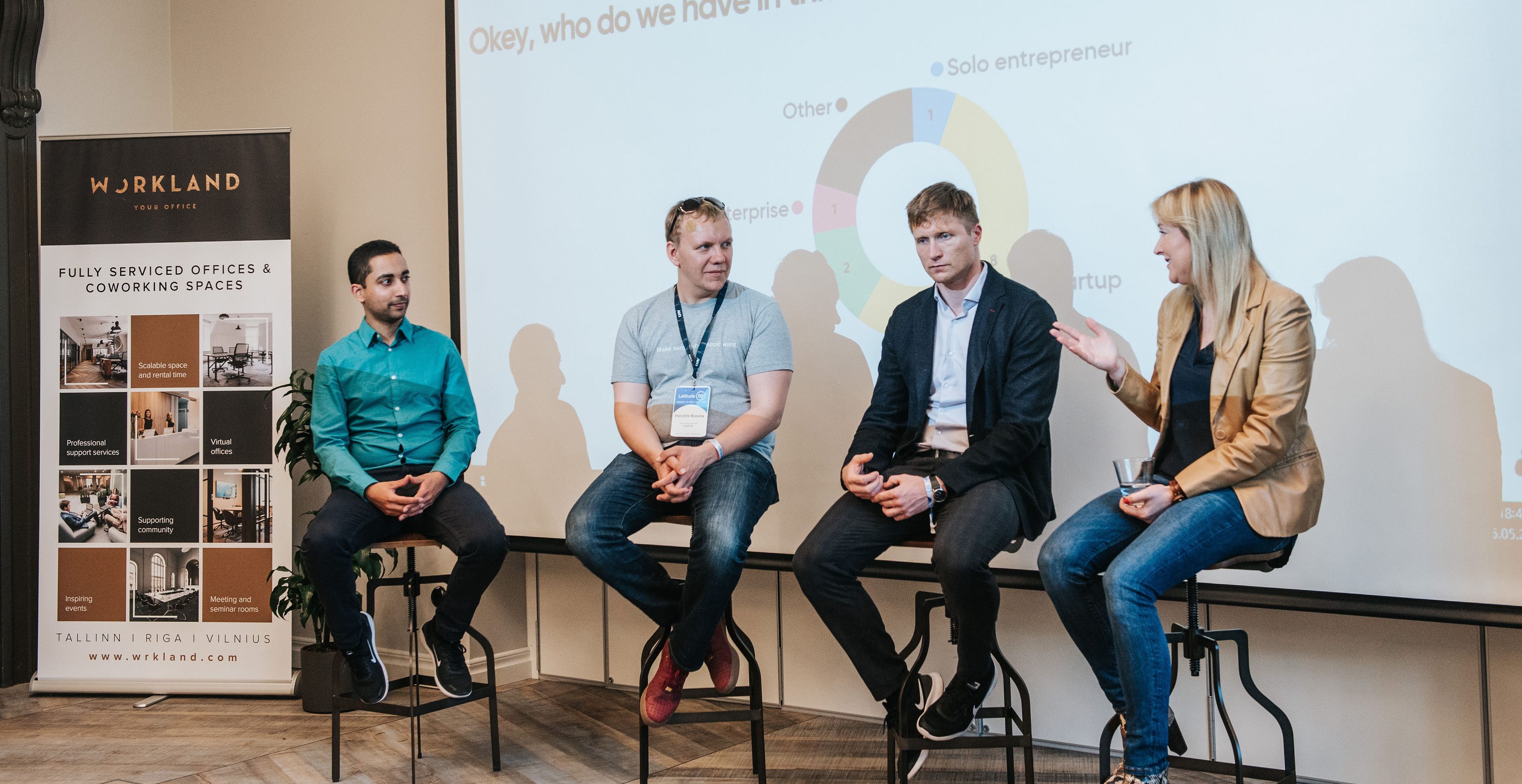The best way to learn how to grow your business is from the experiences and mistakes of entrepreneurs succeeding at this. This is why last Thursday at our Latitude59 side-event: Accelerating Deals with Contract Automation, we invited key people from our clients Veriff, SportID & Fairown Finance to share their insights and strategies. This is a summary.
Your main goal is to sell — it doesn’t matter whether you’re a startup, have product-market fit, are scaling or already at the enterprise level. Your endgame in Sales, at the close, is getting that contract signed. Meanwhile, many businesses still struggle getting deals closed. We’ve seen our clients successfully using Contract Automation to negotiate and close their deals faster in different industries and maturity stages:
- Hendrik Roosna, Founder & CEO at Fairown Finance, financial solutions to increase sales for retailers;
- Marti Soosaar, Founder & CEO at SportID, a web-based solution for managing companies’ health and sports benefits;
- Ulla Helm, Head Of Legal at Veriff, an identity verification service for online businesses.
The event was moderated by Erik Bhullar. We learned a lot and happy to share our 5 take-aways on how to close deals faster:
-
- BE SMART BY QUALIFYING THE NEED
- DON’T SEND YOUR NDA TO A LARGE CLIENT
- WHEN IN ROME, DO AS THE ROMANS DO
Sales-people already know that you need to qualify your customer. What they often forget is figuring out first how much the client is in a hurry to get your service. Find out the business value to them, and understand the demand. If the client is not in a hurry then you will have less space for negotiating your own terms. Never start negotiating without knowing their needs and timeframe. Otherwise you risk getting stuck on minor points in an agreement. This wastes time and can lose you the sale. Avoid negotiating the minor points until the major ones are agreed.
When you speak with a bigger client or corporate, if an NDA is relevant start by asking for their own NDA. Do not try to push for using your own template. An NDA is a basic agreement in B2B sales which is concluded before any further company data is shared with a vendor. An in-house lawyer on the other side is more likely to rip-apart or push-back on terms in your template anyway. Just ask for theirs and avoid the bottleneck. Unless they have crazy terms you need to push-back on, sign their NDA template instead.
Remember your own country’s jurisdiction may be comfortable to you, but not for everyone. Foreign clients are very sensitive to foreign jurisdiction legal exposure. Their legal team is paid to consider worst-case scenarios. It is a risk for them to sign something that would require dealing with unfamiliar laws if there is a dispute. Expect to use their jurisdiction as the governing law in your agreement. When it comes to a foreign jurisdiction you should consider a local lawyer or someone who knows the business and legal environment there. It is worth making sure if you use your client’s jurisdiction that you also have a reasonable understanding of what to do ‘in the unlikely event’ of a dispute.

4. USE CONTRACT AUTOMATION
- Yes, really. Contract automation enables you to give your clients control by making them choose how the contract is drafted by themselves. Giving them the ability to apply their preferences such as jurisdiction, local regulations, contractual liabilities and to consider the price attached to these choices. By giving out this control and letting them ‘engineer’ the contract, you can influence your customers’ relationship with you. This builds trust and long-term loyalty. Importantly, just as using a sales CRM helps with your sales actions, contract automation fuels the scalability of sales enormously — especially at closing.
5. NEVER ASK LAWYERS TO NEGOTIATE YOUR SALE
-
- When you leave lawyers alone to close your sale, it generally will be harder to find consensus over terms. Remember lawyers are not decision makers, their job is to manage and make their client aware of risks. They will debate, argue, and extend the time it takes to get deals done. Keep negotiations between commercial people and leave lawyers out of decision-making. Use lawyers tactically to make sure you have a firm understanding of the risks you’re taking on in any situation, but make sure they focus on negotiating legal terms only. Keep the commercial negotiation between the sales and commercial decision makers.
👉 Set up your first document workflow: Get started for free now.
Avokaado is a pioneer in digitizing legal services. Our team is an expert in building DIY, knowledge management and collaboration platforms. 👉 Request a demo and we’ll show how you can start delivering cutting-edge solutions today.
👇 Liked the article? Subscribe to a Monthly Newsletter below to be notified of the next blog update.
